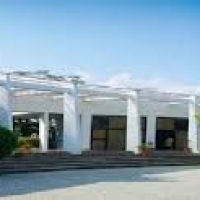The Sanskaar Valley School in Bhopal, Madhya Pradesh Admission, Fees Structure

Where is The Sanskaar Valley School ?
The Sanskaar Valley School is Located in Bhopal , Madhya Pradesh, India
Address of The Sanskaar Valley School, Bhopal
Bhopal-462016
Madhya Pradesh
+91-8889533346
+91-8889533347
info@sanskaarvalley.org
How do I contact The Sanskaar Valley School?
Call at +91-8889533346 to contact The Sanskaar Valley School
About The Sanskaar Valley School
The Sanskaar Valley School is borne of impeccable lineage. Instituted by the Bhaskar Group and the Sharda Devi Charitable Trust, it is an attempt to make the heart of India the centre of learning. Set up with an initial corpus donated by the Bhaskar Group, the school strives to offer the highest level of quality education for all its students. Dainik Bhaskar Group is India's Largest Newspaper Group, with 61 editions published in 4 languages, which is trusted by 4.4 crore readers across 14 states. The major newspapers published by the Group are Dainik Bhaskar, Divya Bhaskar, Divya Marathi and DNA. The Group has diversified interests in sectors such as power generation, solvent extraction, textiles, real estate and entertainment parks. Today, the brand 'Bhaskar' is synonymous to success, quality, dynamism and ethics amongst millions of households across India and the corporate world alike. The Council has been so constituted as to secure suitable representation of: Government of India, State Governments/Union Territories in which there are Schools affiliated to the Council, the Inter-State Board for Anglo-Indian Education, the Association of Indian Universities, the Association of Heads of Anglo-Indian Schools, the Indian Public Schools' Conference, the Association of Schools for the ISC Examination and members co-opted by the Executive Committee of the Council. The Council for the Indian School Certificate Examinations is committed to serving the nation's children, through high quality educational endeavours, empowering them to contribute towards a humane, just and pluralistic society, promoting introspective living, by creating exciting learning opportunities, with a commitment to excellence.
Founded in 1707, the city was the capital of the former Bhopal State, a princely state of the British ruled by the Nawabs of Bhopal Numerous heritage structures from this period include the Taj-ul-Masajid and Taj Mahal palace In 1984, the city was struck by the Bhopal disaster, one of the worst industrial disasters in history A Y-class city, Bhopal houses various educational and research institutions and installations of national importance, including ISRO's Master Control Facility, BHEL and AMPRI Bhopal is home to the largest number of institutes of National Importance in India, namely IISER, MANIT, SPA, AIIMS, NLIU, IIFM and IIIT (currently functioning from a temporary campus inside MANIT).
The city attracted international attention in December 1984 after the Bhopal disaster, when a Union Carbide India Limited (UCIL) pesticide manufacturing plant (now owned by Dow Chemical Company) leaked a mixture of deadly gases composed mainly of methyl isocyanate, leading to one of the worst industrial disasters in the world's history The Bhopal disaster continues to be a part of the socio-political debate and a logistical challenge for the people of BhopalBhopal was selected as one of the first twenty Indian cities (the first phase) to be developed as a smart city under PM Narendra Modi's flagship Smart Cities Mission Bhopal was also rated as the cleanest state capital city in India for three consecutive years, 2017, 2018 and 2019
Subsequently, the region was ruled by the major dynasties of India The Maratha empire dominated the majority of the 18th century After the Anglo Maratha Wars 19th century, the region was divided into several princely states under the British and incorporated into Central Provinces and Berar and the Central India Agency After India's independence, Madhya Pradesh state was created with Nagpur as its capital: this state included the southern parts of the present-day Madhya Pradesh and northeastern portion of today's Maharashtra In 1956, this state was reorganised and its parts were combined with the states of Madhya Bharat, Vindhya Pradesh and Bhopal to form the new Madhya Pradesh state, the Marathi-speaking Vidarbha region was removed and merged with the Bombay State.
This state was the largest in India by area until 2000, when its southeastern Chhattisgarh region was designated a separate state The economy of Madhya Pradesh is the tenth-largest state economy in India with ₹809 lakh crore (US$110 billion) in gross domestic product and a per capita GDP of ₹90,000 (US$1,300) Madhya Pradesh ranks 32nd among Indian states in human development index Rich in mineral resources, Madhya Pradesh has the largest reserves of diamond and copper in India.
More than 30% of its area is under forest cover Its tourism industry has seen considerable growth, with the state topping the National Tourism Awards in 2010–11 In recent years, the state's GDP growth has been above the national average